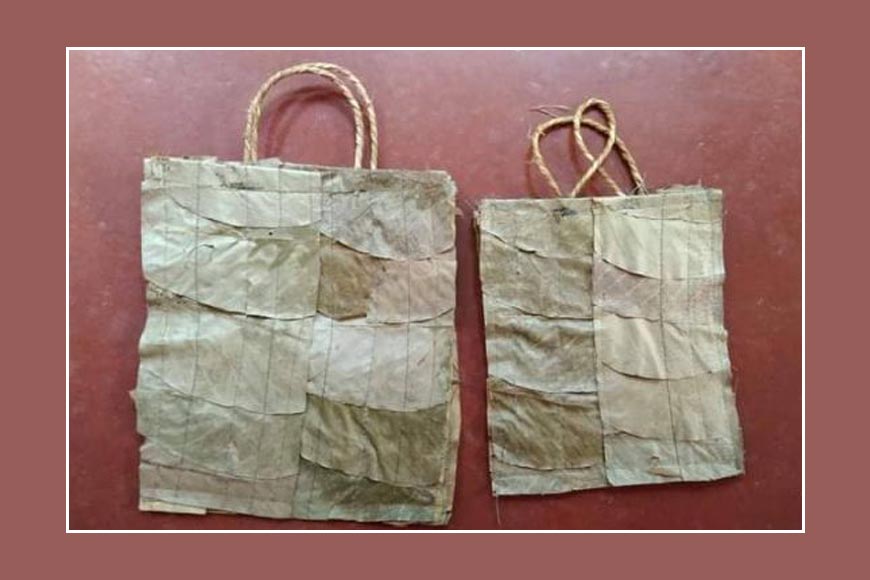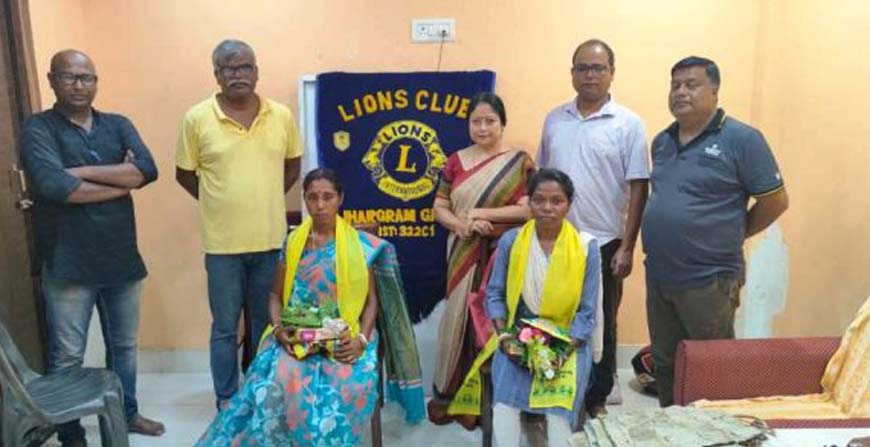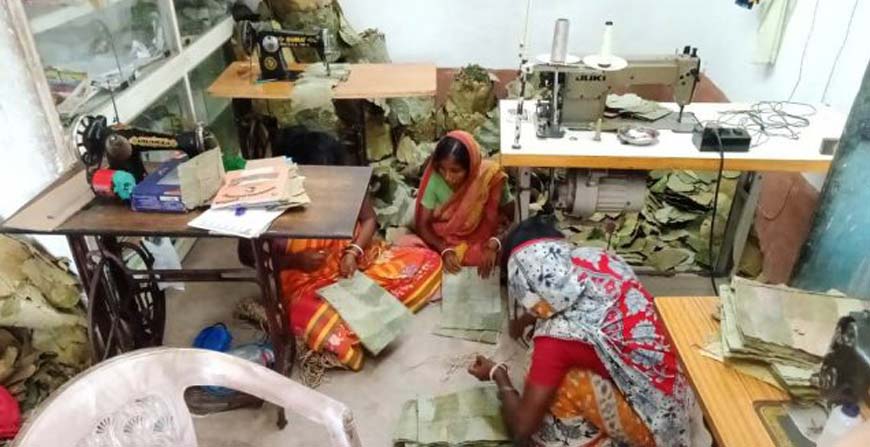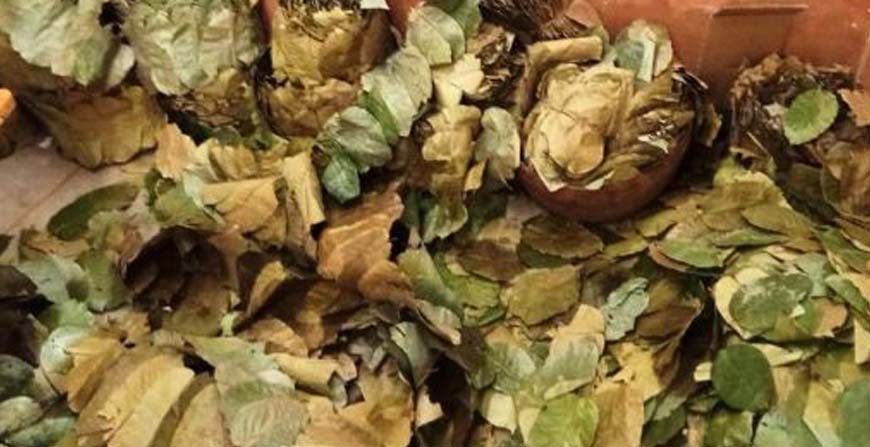Women of Bankura and Jhargram show the way to Green bags

Over the last decade or so, the rural women of Bengal, especially those living in the tribal belt, have silently contributed to the Go Green and Plastic Free revolution by making Sal leave baskets, plates, cups, etc on a mass scale. However, recently the women of the remote villages of Bankura and Jhargram have come up with another new idea of making Sal Leaf bags. These bags can be used for shopping, for buying fruits and vegetables, or even as a style statement for any suitable occasion. Usha, Nirmala, and Shanti, all in their late 50s, may not have gone to school, but they know the menace of plastic pollution, unlike the educated urbanites. Living close to nature all their lives, they know that the ‘green initiative’ would come through hard work and innovative ideas.
Today their handmade bags of Sal leaves are being extensively used, even at medicine shops and local markets. They are even sent to the far away cities. The women of tribal-dominated Ranibandh village first started making carry bags with Sal leaves. As Sal trees are abundant in its nearby jungles, it was easy for the women to get hold of the raw material that goes into the making of these bags. The women travel by foot to the jungles every morning to collect the fallen Sal leaves. Then these leaves are dried and stitched into bags. The procedure sounds simple, but the entire initiative is praiseworthy in a world where plastic pollution has threatened the very existence of humans along with thousands of animal and plant species. As environmentalist Arup Sarkar of Science College mentions: “Sal leaves are bio-degradable, and these bags are indeed reusable. So unlike plastic bags, whatever their thickness might be, these bags will never cause any land or water pollution. They are indeed the future of India.”

Today, thanks to the marketing carried forward by different organizations such as the Lions Club of Jhargram, these eco-friendly carry bags are taken from Ranibandh to Jhargram town.
The best part is these bags are not costly at all. They are just Rs 4 per bag and can be used multiple times. Asim Kumar Sinha, President of Lions Club, runs a medicine shop that comes under The Ministry of Chemicals and Fertilizers ‘Pradhan Mantri Bhartiya Janaushadhi Pariyojana.’ He told the press: “We have started this eco-friendly initiative to reduce the use of plastic carry bags among the locals to make Jhargram green. Presently a group of 7-8 women is working under the leadership of village women Bandana Singh and Urmila Singh Sardar. We regularly buy these bags from them.”
Also read : Women Entrepreneurs in Bengal’s MSME
The women come from extremely underprivileged families and making these bags help financially support their impoverished families. Seeing this initiative, more and more women in the area are joining. It has now become a sort of mass initiative to make Jhargram plastic-free, as well as create a sustainable source of income for the localites. The local buyers are also showing interest in these bags, and they are ready to shell out Rs 4 to buy the bags instead of bringing cloth bags from their homes.

Once the leaves from dense jungles are sun-dried, they are stitched into bags and later put into a compressor machine to get the shape right. The handles of these bags are handwoven with Babuidori, a strong and sustainable grass that grows in this region. Initially, these women started selling the bags, which come in different sizes, in the local haats (temporary markets). But that did not fetch them enough money to make more. Members from the Lions Club of Jhargram Green visited them and generated funds to convert this initiative into a sustainable project.
But adequate machines needed for the work, including the sewing machines, are still a challenge. They need financial support to ramp up production and earn more in the future. ‘Plastic Free Society,’ an awareness page on social media has posted on their handle about these women, and how they require new sewing machines and compressors to make 200-250 bags daily. A hotel in Kolkata has shown interest in purchasing the bags, but they want them in bulk amounts which these women cannot deliver unless they get new machines. The lack of resources also stops engaging new women in the project.

Elaborating on the problem, Asim Kumar Sinha added: “We have to pay a higher transportation cost right now because the women are making these bags at a small scale. As soon as they begin manufacturing in bulk, the costs will automatically go down. But for that to happen, these women need machinery and financial support. Currently, they are stitching the bags with normal sewing machines meant for clothes; as a result, the raw material wastage is very high. Businesses from Kolkata have shown interest in purchasing these bags. But they want it in bulk amounts which these women are unable to make at the moment.”
Photo credit: The CSR Journal










